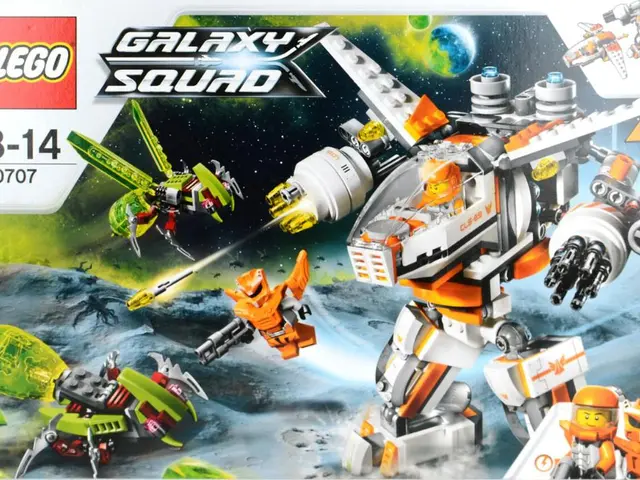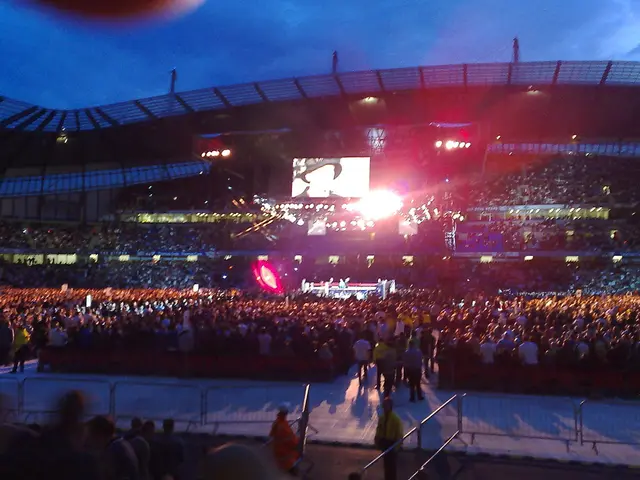Delving into the Universe of Televised Reality Shows
In the past two decades, reality television has revolutionized the entertainment landscape, leaving an indelible mark on popular culture. This transformative medium has impacted various aspects, from format innovation and audience engagement to language, celebrity culture, and sociocultural reflection.
Pioneering New Formats and Interactive Viewing
Reality television's introduction of 24/7 live feeds and real-time drama in shows like "Big Brother" provided audiences with unprecedented behind-the-scenes access, blurring the line between entertainment and surveillance. The evolution of strategic gameplay, from public voting to complex social strategy, transformed viewers into armchair strategists, dissecting every move on social media and online forums. Reality TV fostered a culture of active engagement, with fans discussing episodes, forming online communities, and even influencing outcomes through voting and social media buzz.
Language and Memes
Reality TV has added terms like "backdoor," "showmance," and "floaters" to everyday language, and catchphrases from these shows have become part of the cultural conversation. Memorable moments, conflicts, and catchphrases from reality shows often go viral, shaping internet culture and humor.
Celebrity Culture and Influence
Reality television democratized fame, making stars of ordinary people almost overnight. This shift challenged traditional notions of celebrity and talent, sometimes sparking debate about the value and authenticity of fame. Families like the Kardashians leveraged their reality TV platform to become global influencers, affecting beauty standards, fashion, and even launching multimillion-dollar brands. The genre’s focus on personal drama and “real” emotions fueled public fascination with the private lives of both reality stars and traditional celebrities.
Sociocultural Reflection and Criticism
Reality TV often reflects and amplifies societal trends, conflicts, and aspirations, offering a lens through which audiences examine issues like relationships, competition, and social dynamics. However, the genre has faced significant criticism for staging, manipulation, and exploitation, raising questions about authenticity and the ethics of entertainment. The willingness of participants to share intimate moments and personal struggles contributed to a broader cultural shift toward public vulnerability and self-disclosure.
Global Reach and Franchising
Hit shows like "Big Brother," "Survivor," and "Idol" became global franchises, adapting to local cultures while maintaining core competitive and dramatic elements. These formats spread rapidly, influencing television production and pop culture worldwide, creating shared reference points across borders.
Conclusion
Reality television didn’t just entertain—it became a catalyst for new forms of media consumption, language, celebrity, and social interaction. Its legacy is visible in the way people watch, discuss, and even aspire to participate in media, making it one of the defining forces of 21st-century popular culture. Some reality TV stars have managed to parlay their 15 minutes of fame into long-lasting careers, launching their own clothing lines or starring in blockbuster films. Reality TV has created a new breed of celebrities, with everyday people becoming household names and influencers. Behind the scenes, reality TV shows are carefully crafted to create drama and tension, often through editing and casting choices.
In the realm of 21st-century lifestyle, reality television's impact extends beyond entertainment, influencing technology and social interaction. The genre's emphasis on real-time drama, strategic gameplay, and public voting enhances the concept of technology-driven interactivity, allowing viewers to engage with content in new ways. Furthermore, reality TV's catchphrases, memes, and unique language have infiltrated pop culture, blurring the line between entertainment and everyday communication.




